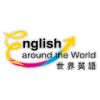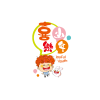昔日文章


English Around the World
2013.01.27
Christian Names
It is very common for Hong Kong people to have an English name. Do you have one? What is its origin? In Western countries, a given name is often called a Christian name or a baptismal name. Strictly speaking, a Christian name is a name given to a child at baptism.
Traditionally, parents in most Western countries give their children names modelled after figures in the Bible (e.g. Mary and John) or the saints (e.g. Teresa and Bernard). You might also have noticed that these names have different forms of spellings in other European languages. For example, the first name "Gabriele" of Blessed Gabriele Allegra is the Italian name of the Archangel "Gabriel" who announced to Mary the coming birth of Jesus.
While giving a baby the name "Jesus" is considered taboo or greatly disrespectful towards Jesus Christ in some Christian countries, this is a popular name in Spanish-speaking countries (e.g. Spain and Mexico) with a different spelling, "Jesús", and pronunciation.
In recent decades, popular culture has greatly influenced naming practice. In Britain, celebrity names such as Ashton (after the actor Ashton Kutcher) and Lily (after the singer Lily Allen) were among the most popular given to babies in 2011. In Hong Kong, a news article found that Hong Kong people love weird English names such as Devil, Whale and Cash.
As a name can be a guiding force in a baby's life, Pope Benedict XVI has urged parents to turn to the Bible for inspiration when naming their baptized children.


Neither East Nor West
2013.01.27
Parli cinese? (Italian) Do you speak Chinese?
It truly amazes me to read stories of missionaries going to foreign lands and have to first learn the native language before they could start sharing their faith. It was difficult for me just to learn Mandarin with my Cantonese background. I have an associate from India and even though he speaks English well he still has problems with American pronunciation, accents, idioms and cultural perceptions. Blessed Gabriel Allegro(雷永明神父) arrived Húnán(湖南)in 1931 when the Chinese spoken language was not even standardized. Most Chinese did not speak Mandarin. Most only spoke the local dialect like Beijing huà, Guangdong huà, Shànghăi huà, etc. Even Beijing Hua was different from Mandarin which was the language of the imperial court(京話)and the style of speaking was flowery and high brow (官腔), certainly not what we now call Pŭtōnghuà(普通話).
After learning how to speak whatever dialect Fr. Gabriel still had to learn to write Chinese. It is difficult for us, learning from an early age, to remember the strokes of words seldom used. I still have problems reading the Bible in Chinese. When I do, I usually have the English text close by to make sure I did not miss anything. That is why I am writing these columns in English. It would have taken too long to write them in Chinese, every week. I don’t mind sharing my thoughts and faith, in English.
Such was Fr. Gabriel’s zeal for scripture and his burning desire for us Chinese to be able to read the Bible in our own language. He is truly “St. Jerome of China”(中國的聖師熱羅尼莫).
By the way, who gave Fr. Gabriel the name‘ 雷永明神父’ ?
Blessed Gabriel Allegro, pray for us.
真福雷永明神父,為我等祈!


Magic Mirror
2013.01.20
To be a hero or not to be
Hope everyone have an awesome Christmas and a wonderful holiday. Besides working, I mostly stayed at home and had self-reflection. I am trying to find a new direction for myself again, but where do I begin? More work, more practice? I think I need more than that.
Thinking that I have not been to a movie for a long time, I decided to go for "Wreck-it Ralph!" (中譯:《無敵破壞王》)and hope to laugh heartily(盡情地). I was half right, the movie had a cool storyline and it was fun to watch, but I shed tears too, out of my expectation.
Ralph is a villain(惡棍,戲劇的反派角色)character in his job inside a video game and of course no one likes the "bad guy", so he determines to get a medal and shows the others that he can be a hero . Of course the story goes with a happy ending, telling us to believe in ourselves, retaining a good heart and to treasure friendships.
I realize that there must be times we admire, or even be jealous over what the others have, but we never think about what we actually have. Out of all valuable things we own, I think that a good heart is the greatest asset(財產)of our life. When you are willing to share what you have, you are putting seed of hope in other's life and maybe someday, you will become their hero too!


English Around the World
2013.01.20
Drinks
During Christmas, Tommy and his parents visited London. One afternoon, they dined at a pizza restaurant. His parents ordered a kid's menu, which included a salad, a main meal and a drink, for Tommy. Tommy read the drink menu (below), but had no idea what to choose because he had never seen the words "squash", "spring water" and "fizzy drinks" before. In the end, he chose orange juice.
DRINKS
Fresh milk
Fruit juice (orange or apple)
Squash (orange, or apple and blackcurrant)
Spring water
Fizzy water (Pepsi or 7 Up)
Squash is a drink made from fruit juice, sugar and water. It is different from pure fruit juice because it contains added sugar, little fibre and must be
diluted before it is drunk.
Spring water is a kind of bottled water. Nowadays, there are many kinds of bottled water available in the market such as distilled water and mineral water. You can sometimes request a glass of drinkable tap water for free when travelling in some Western countries such as Britain.
Fizzy drinks (or "soft drinks") are called "carbonated drinks" or "soda" in the USA. Last year, the most popular soft drink brands in the world were Coca Cola, Diet Coke, Pepsi-Cola, Sprite, and Fanta.
The term "soft drink" means a non-alcoholic cold drink in contrast to the term "hard drink" and "drink". As the term "a drink" normally refers to an alcoholic drink, what should you say when you want to offer someone a soft drink? Try to specify: "Would you like an orange juice or a glass of water?"


